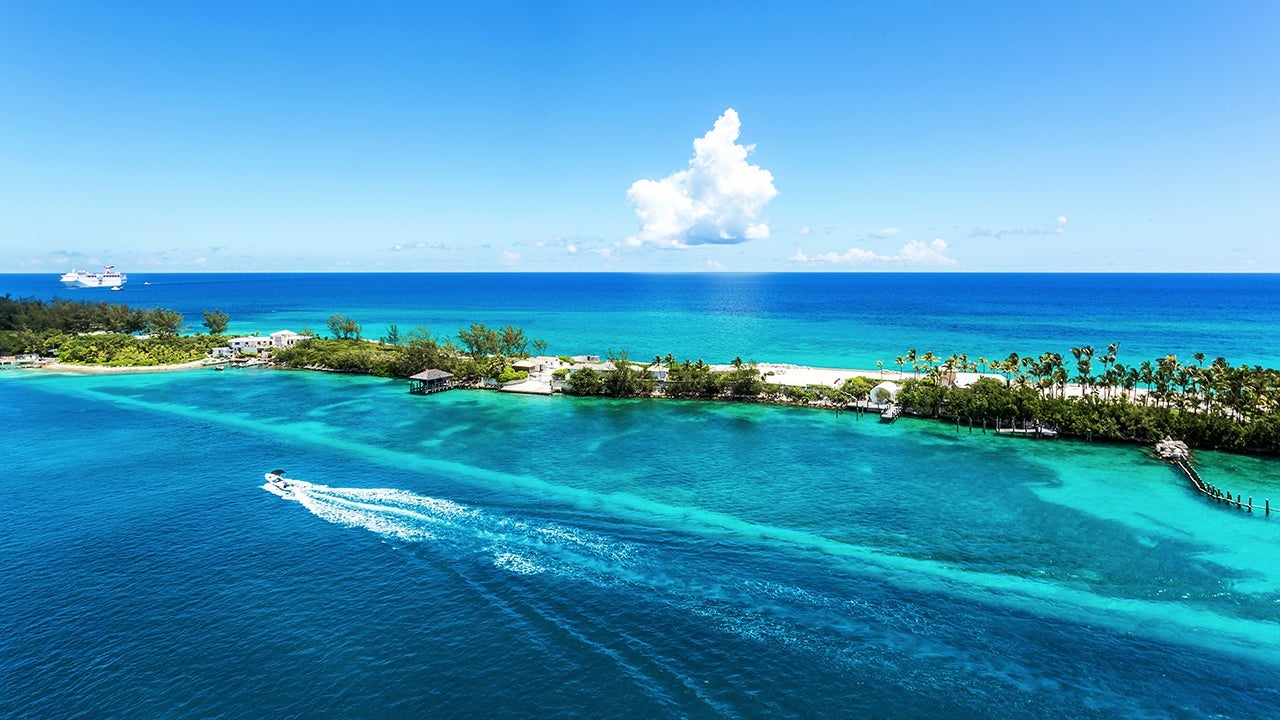5 Island Destinations You Can Visit Without Worrying About Zika
Mosquito-borne diseases, such as Zika, are a very real issue for travelers (and, of course, locals). But for families, Zika has been an especially concerning virus, especially in 2016 when there were a half million suspected cases. Thankfully, those numbers have come way down in the last 12 months.
Though Zika symptoms are generally flu-like and mild, women who are pregnant or who plan to become pregnant in the near future need to be extremely cautious when traveling to areas where Zika-carrying mosquitos bite. According to the Centers for Disease Control and Prevention (CDC), contracting the Zika virus during pregnancy can cause a litany of serious problems for the developing fetus. The CDC states that these can include:
- Severe microcephaly
- Decreased brain tissue
- Damage (such as scarring) to the eye
- Joints with limited range of motion
- Too much muscle, which can restrict movement
Many families understandably don't want a vacation to compromise the health of their unborn child. Back in 2016, some airlines were even providing refunds for travelers with plans to visit areas known to have the Zika virus. Though Zika is no longer the headline-catcher it was two years ago as it has subsided in many areas as quickly as it spiked, it is still a real issue that many families take into consideration when deciding where to travel.

Zika Is Still Out There
The (very) good news is that, according to the CDC, zero local mosquito-borne Zika virus transmissions were reported within the United States in 2018. However, there were 148 new cases in the US Territories of Puerto Rico and the US Virgin Islands. In addition to transmission within some island-based US Territories, Zika is still considered an issue when abroad. A small but quantifiable number of US residents continue to contract Zika while traveling (72 reported cases in 2018). Remember: Zika can also be transmitted sexually, so even if only one partner travels to an area with Zika, there can be complications for families eager to expand.
So what is a beach-loving family to do if they want to travel somewhere warm and tropical — even subtropical or temperate — where Aedes mosquitoes thrive? Well, one option is to go somewhere else entirely, where the climate is cooler and less humid. But another option is to zoom in carefully on a map of the areas the CDC identifies as having a risk of Zika.
At first glance, everything south of the United States, other than Chile and Uruguay, is essentially purple, which means they are areas where travelers are at risk of Zika infection.
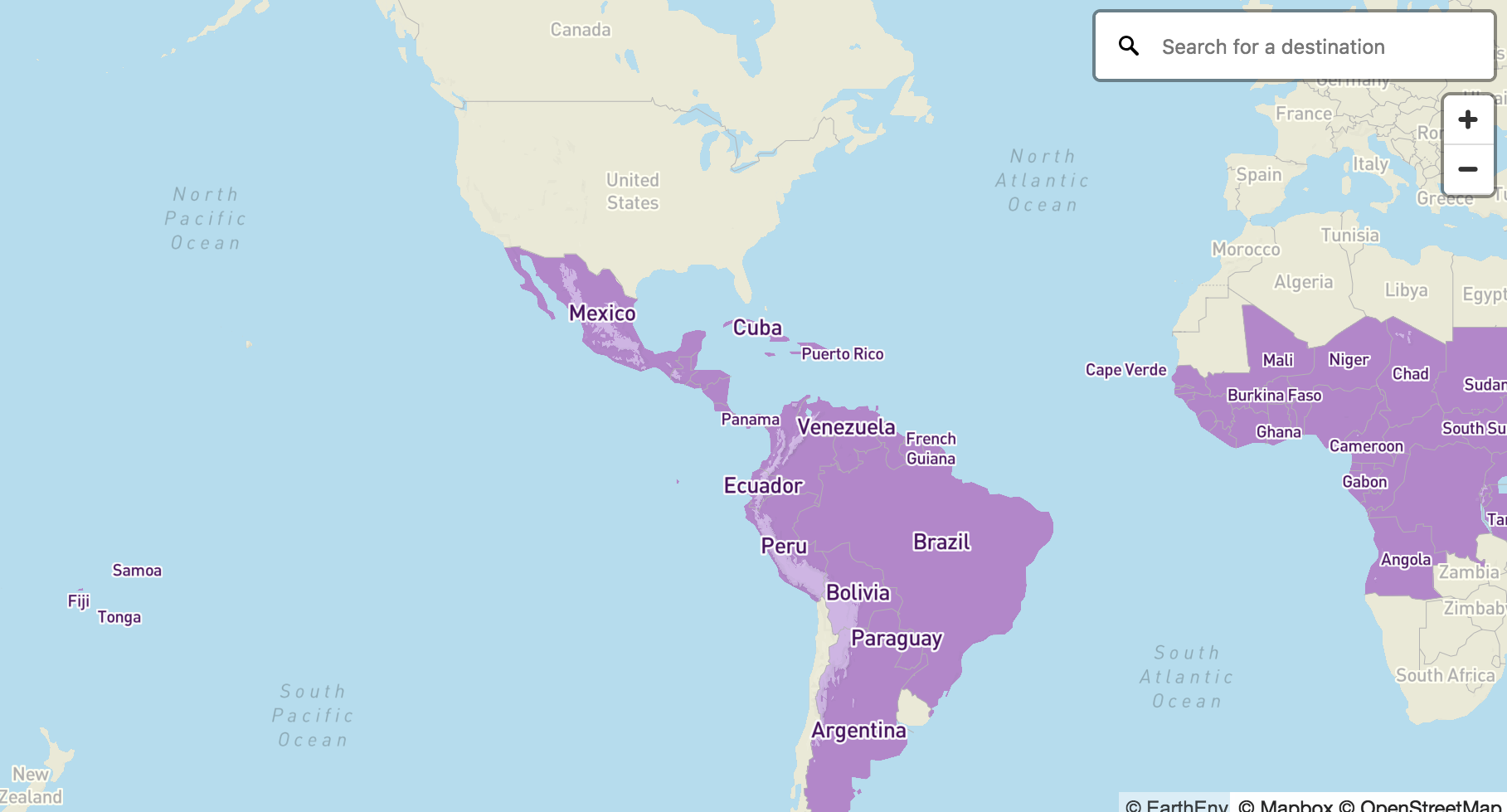
Take a closer look, however, and you will see there are some non-purple areas below the border — even within the Caribbean.
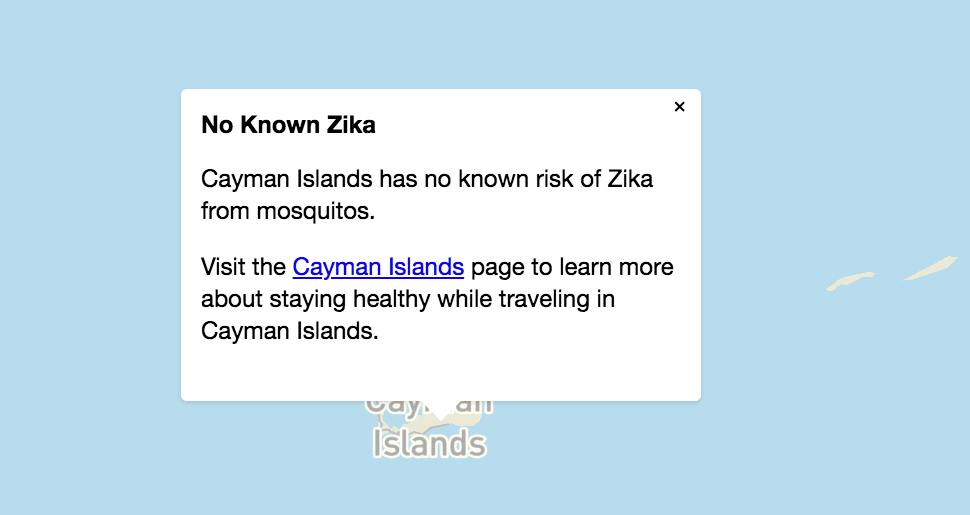
Caribbean destinations with no risk of Zika
While it can change at any time, as of the writing of this article, the Cayman Islands, the Bahamas, Guadeloupe and Martinique are all characterized by the CDC as having no known risk of Zika from mosquitoes. In the case of the Bahamas, it was removed from the list of areas with known risk in early 2018, as no new cases had been reported for 12 months.

And north of the Caribbean Sea, Bermuda also has the all-clear from the CDC.
For points-oriented family travelers concerned about Zika, this may again open up options for Caribbean stays at properties such as the Atlantis, Paradise Island; the Grand Hyatt Baha Mar; and the Westin Grand Cayman.

My own family has had a tremendous time visiting the Bahamas and the Cayman Islands, so I'm very relieved they have been labeled Zika-free zones by the CDC. I personally know families who hope to have more children in the near future that are now actively planning trips to these Caribbean (and near Caribbean) destinations almost entirely because they are listed as having no current risk of Zika transmission from local mosquitoes.
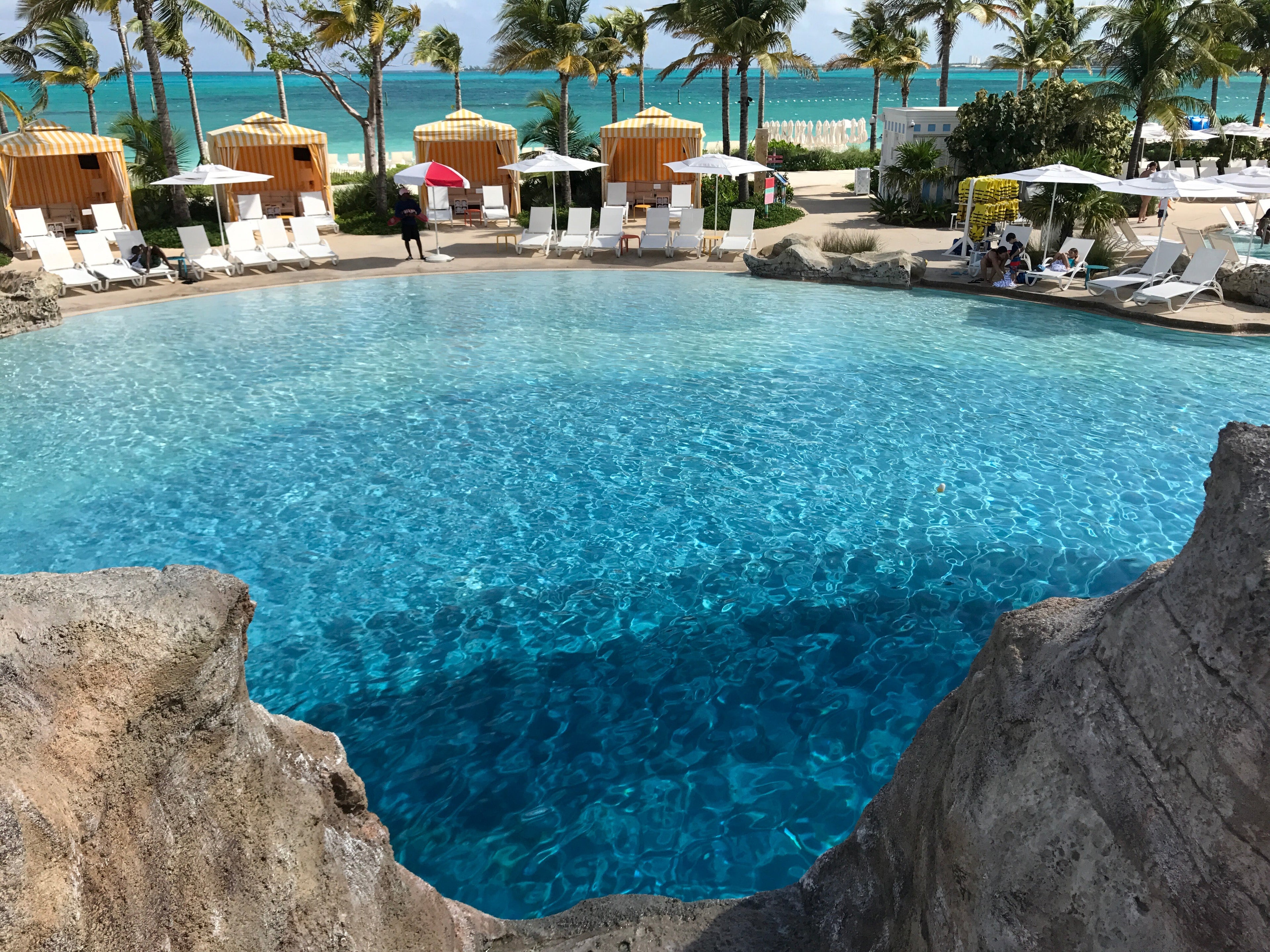
Advice for families concerned about Zika
Just because certain destinations are labeled Zika-free on the CDC website, doesn't mean travelers shouldn't still exercise caution. According to Dr. Rajiv Narula, MD and founder of the International Travel Health Consultants, there are other factors people contemplating travel to an area that may have a higher Zika risk should consider.
For one, it isn't all about Zika, Narula said. The same daytime-biting mosquitoes from the Aedes genus that can live indoors and carry Zika can also carry dengue and chikungunya, so take precautions even if Zika isn't a major concern for you and your family.
Travelers can also be proactive about mosquito prevention. When indoors, use air-conditioning and/or netting. On sun-exposed skin, use 30% DEET and/or lemon eucalyptus. And on your clothing and in your room, spray Permethrin. This should last up to six washes on your clothing.
Narula does not recommend traveling to areas listed by the CDC with a Zika risk if you are pregnant or planning to become pregnant within three to six months of your visit. (The CDC has reduced its recommendation for how long to wait to become pregnant after traveling to an area with Zika to three months, down from six.)
But keep in mind that conditions can change quickly. Narula suggests that travelers take mosquito-bite-preventing precautions regardless of whether or not your specific destination is on the current CDC Zika risk list. This is especially true because, again, there may be other mosquito-borne diseases in that destination beyond Zika.
In other words, before you head to the Caribbean or a similar island getaway with your family, consult your doctor and have a good mosquito-repellent plan in place before you land — just in case.
To help you stay safe from mosquitos and plan trips to island destinations currently deemed Zika-free, we curated a list of helpful articles to get your family headed in the right direction.
How to plan a Zika-free island vacation
- 5 Easy Ways to Zika-Proof Your Travels
- 10 Amazing Zika-Free Beaches
- Best Ways to Get to the Bahamas Using Miles and Points
- Swim With Pigs in the Bahamas
- Five Things to Know About the Westin Grand Cayman
- 5 Things for Kids to Do in Grand Cayman
- TPG Bahamas Guide
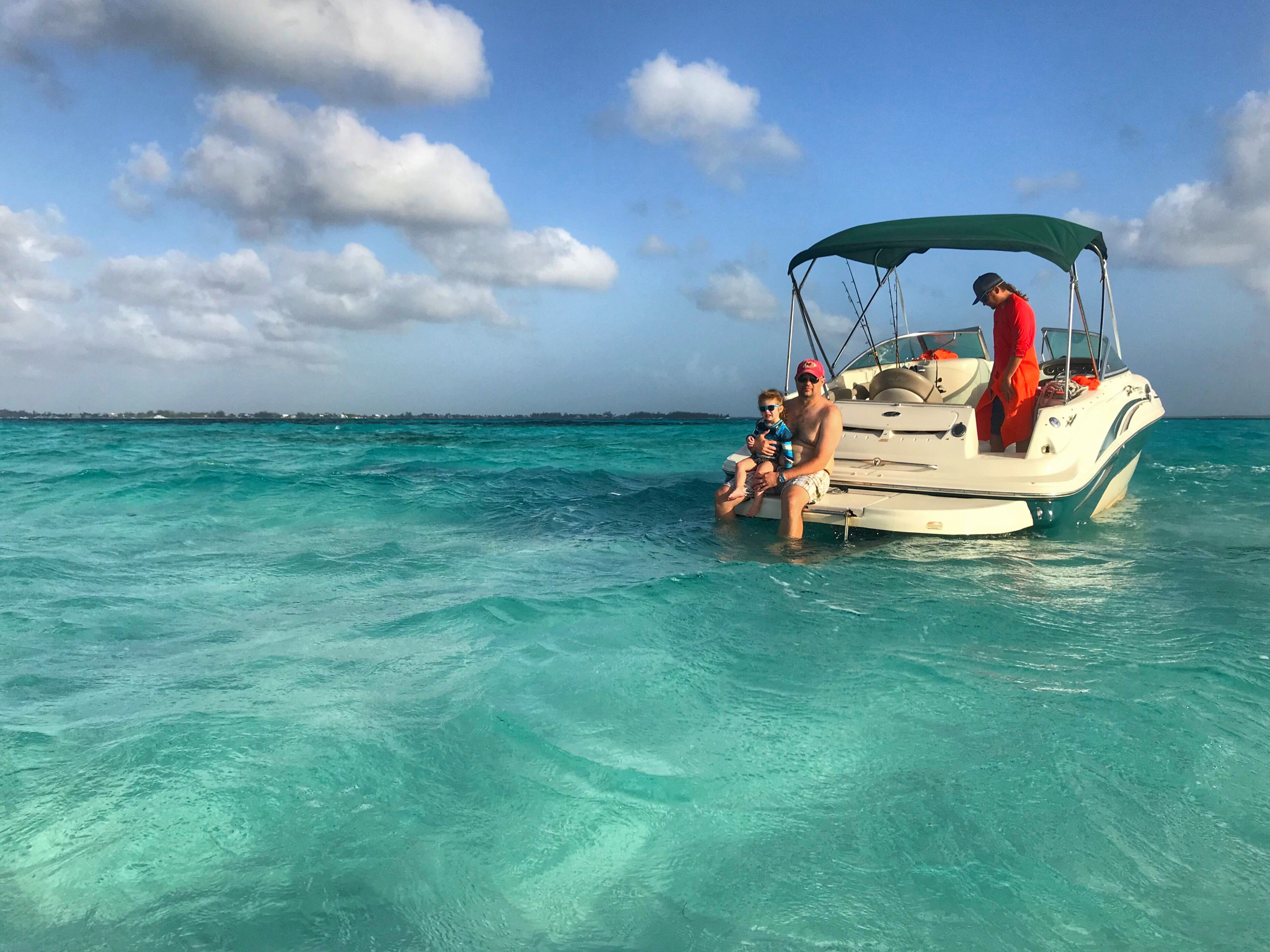
Featured photo by Pola Damonte via Getty Images/Getty Images
TPG featured card
at Capital One's secure site
Terms & restrictions apply. See rates & fees.
| 5X miles | Earn 5X miles on hotels, vacation rentals and rental cars booked through Capital One Travel |
| 2X miles | Earn unlimited 2X miles on every purchase, every day |
Pros
- Stellar welcome offer of 75,000 miles after spending $4,000 on purchases in the first three months from account opening. Plus, a $250 Capital One Travel credit to use in your first cardholder year upon account opening.
- You'll earn 2 miles per dollar on every purchase, which means you won't have to worry about memorizing bonus categories
- Rewards are versatile and can be redeemed for a statement credit or transferred to Capital One’s transfer partners
Cons
- Highest bonus-earning categories only on travel booked via Capital One Travel
- LIMITED-TIME OFFER: Enjoy $250 to use on Capital One Travel in your first cardholder year, plus earn 75,000 bonus miles once you spend $4,000 on purchases within the first 3 months from account opening - that’s equal to $1,000 in travel
- Earn unlimited 2X miles on every purchase, every day
- Earn 5X miles on hotels, vacation rentals and rental cars booked through Capital One Travel
- Miles won't expire for the life of the account and there's no limit to how many you can earn
- Receive up to a $120 credit for Global Entry or TSA PreCheck®
- Use your miles to get reimbursed for any travel purchase—or redeem by booking a trip through Capital One Travel
- Enjoy a $50 experience credit and other premium benefits with every hotel and vacation rental booked from the Lifestyle Collection
- Transfer your miles to your choice of 15+ travel loyalty programs
- Top rated mobile app

